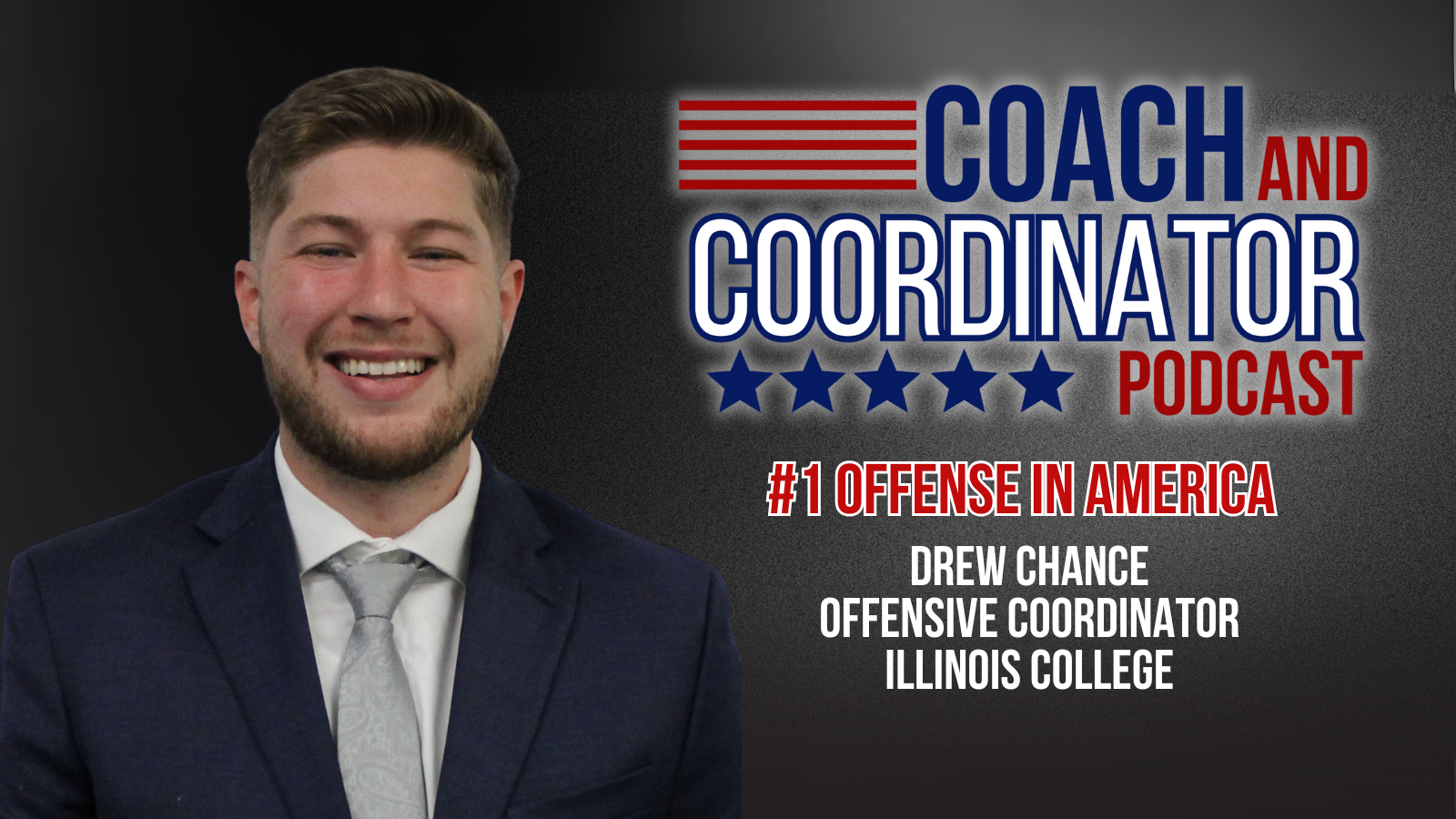
Illinois College produced some astounding numbers in 2024 in turning in the best performance in college football:
- 589.4 yards per game
- 55.4 points per game
- 376.4 passing yards per game
- 213 rushing yards per game
- 51 Pass TD, 22 Rush TD
- 28.5 First Downs per Game
- 46 1-minute or less Touchdown Drives
Offensive Coordinator Drew Chance joins us to discuss his journey in the profession, which led to him developing the offense that they run. He’s incorporated high-tempo, maximized splits, the deep choice route, and more. We talk about his offense and how he creates buy-in with the players. We also discuss his game-day routine for being a high-tempo play caller.
Chapters
- Drew’s Coaching Journey
- The Self-Taught System
- Evolving the Offensive Strategy
- Tempo and Spacing Philosophy
- Unscripted Practice Periods
- Preparing the Scout Team
- Balancing the Run Game
- Execution in High-Pressure Games
- Cultivating a Winning Culture
- Communication During High Tempo
- Pre-Game Preparation Rituals
Here are some actionable lessons and reflective questions to help you apply Drew Chance’s insights to your own coaching journey:
Key Lessons:
- Embrace Continuous Learning: Building a system often starts with curiosity and self-study. Seek out resources, analyze tape, and don’t shy away from trial and error.
- Simplify for Success: Streamlined terminology and one-word calls improve both execution and tempo, helping players operate confidently and efficiently.
- Focus on Core Philosophy: Build your offense around clear principles (e.g., tempo, spacing, matchups) that align with your team’s strengths and identity.
- Prioritize Player Buy-In: Teaching the “why” behind concepts fosters commitment and effort. Players who take pride in their roles are more likely to execute at a high level.
- Evolve Your System: Be willing to adjust and refine your approach based on what works on the field. Growth is a continuous process.
Reflective Questions:
- Learning and Adaptation:
- What new concepts or systems have you explored recently?
- How do you approach trial and error when implementing new ideas?
- Simplicity and Clarity:
- Is your play-calling terminology simple enough for quick communication and execution?
- Could you streamline your game plan without sacrificing effectiveness?
- Philosophy and Identity:
- What are the core principles of your offensive (or defensive) system?
- Do all your plays and adjustments align with these principles?
- Culture and Buy-In:
- How do you communicate the “why” behind your system to players?
- Are your players motivated to take ownership of their roles and effort?
- Evolution and Growth:
- What aspects of your system could you refine or improve for better results?
- How do you evaluate and incorporate feedback from your team and staff?
By reflecting on these points, you can take steps to strengthen your system, refine your approach, and better empower your team to succeed. Coaching is a journey—just like Drew Chance, you can create something remarkable by staying curious, adaptable, and committed to your craft.
Read About Coach Chance:
If You Build It: The Self-Taught Journey of Drew Chance and the #1 Offense in America
Coaches Mentioned in this Article + X handle:
Drew Chance: @DrewChance_10
John Pennington: @CoachPenn
Phil Longo: @CoachPhilLongo
Noel Mazzone: @NZoneFootball
Josh Heupel: @CoachJoshHeupel
Ryan Garrett: @CoachRGarrett
Andrew Coverdale: @AndrewCoverdale
Riley Reid: Offensive Line Coach – @Coach_RReid
Mike Salerno: WR – @CoachSalerno27
Adam Frey: RB – @coachadamfrey
Related Episodes:
Recruiting, NIL, Building Culture – John Pennington, Head Coach, West Virginia State
Six Keys For Red Zone Success – John Pennington, Head Coach, West Virginia State
Coordinating An Offense – Phil Longo, Offensive Coordinator, Wisconsin
“Don’t Blink” – Phil Longo, Offensive Coordinator, Wisconsin
Creating an Offensive System.- OC Noel Mazzone
Resources:
Elliott Wratten & Jason Phillips Deep Choice


